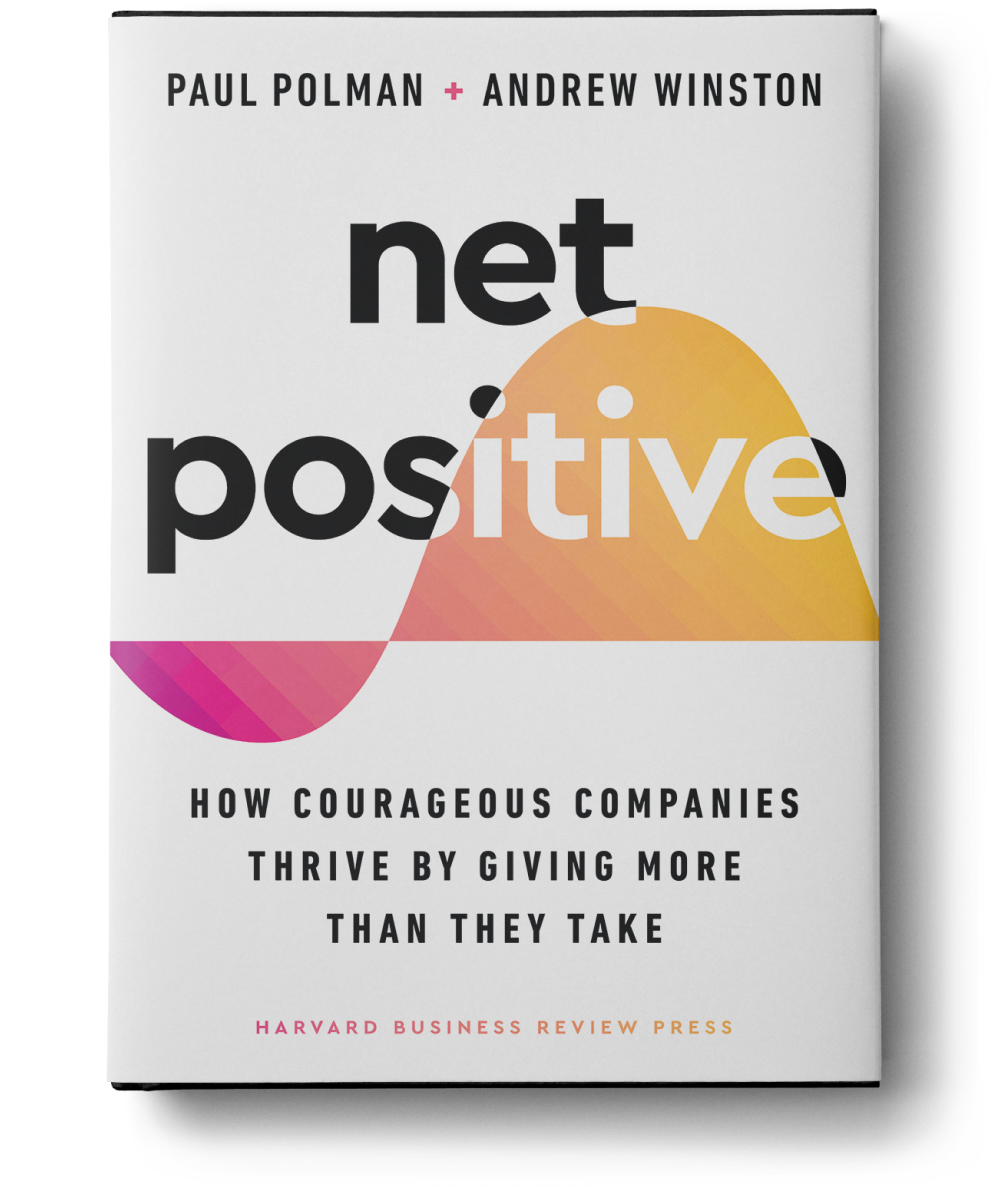What do the economist Milton Friedman, the father of modern business’ obsession with maximising profits, and climate activist Greta Thunberg have in common?
Surprisingly, it’s more than you think.
While Friedman, a staunch free marketeer, may not have joined the protesters outside the COP26 climate talks, if he was still alive today he would agree with them on something. That CEOs need to care about climate change, and do something about it. His call for corporate activism would be driven less by ethics, however, and more by economics. Specifically, the impact of unchecked global warming on companies’ bottom lines.
The cost of planetary disaster to big business, now in the $ trillions, is increasingly difficult to ignore. Top economists agree that the price of inaction on global warming now far outstrips the upfront cost of action. And the opportunities of shifting to a clean, low carbon economy are clear. Even on conservative estimates, bold moves between now and 2030 could yield a direct economic gain of $26tr compared with business-as-usual. When it comes to tackling climate change, it turns out talk is expensive and action is cheap, and potentially extremely profitable too.
More and more CEOs are already living with these financial realities and the private sector has been out in force in Glasgow. In 1992 just a handful of CEOs went to Rio for the original Earth Summit. In those days no one, bar the energy giants, engaged in these kinds of meetings. If pushed, the banks would send interns. COP26, however, has been heaving with major players from every industry. It says a lot that fossil fuel companies weren’t invited, even if they did find a way in.
In almost every interview or talk I’ve given during this last fortnight, the same question came up in some form or another: has business really woken up to the climate emergency? Is the green conversion among CEOs fiction or real? Is the private sector having its “road to Damascus” moment? The answer is mixed, but promising.
A tremendous shift is taking place across business as climate moves from a peripheral issue to mainstream concern, in boardrooms around the world. This presents immense opportunity to use industry as an engine for accelerated action. But only if the prevailing corporate mindset can be moved from passive to active. Many business leaders recognise the need to do more, but joining the party isn’t enough; we need them actively leading from the front.
I don’t want to downplay the progress that has been made – and much of it over the last 18 months, by the way, despite the COVID pandemic. There are still too many fakers and laggards, of course. And I despair when I see the greenwashers treat these summits as a giant shop window, where they can showcase their latest CSR initiatives to drum up new business. But their bad behaviour mustn’t detract from the strides being taken. We are seeing more and more companies set bigger targets than ever, and enter into previously unthinkable coalitions.
This includes the +5000 firms companies joining the Race to Zero, a global campaign to get whole sectors driving a faster transition to a new economy, from fashion to food, travel, tourism, and even heavy and hard to abate industry. Executives everywhere are seeing that employees, customers and wider society expect them to step up. Their children are among the voices demanding they take responsibility, and their investors too. Last week the amount of global capital behind net zero surged to $130tr, 25 times the figure pledged just two years ago; this is half the world’s money.
Our biggest barrier to bolder corporate ambition is not sincerity, despite what you often read. No CEO wants planetary disaster on their watch. No, our biggest hurdle is that much of the business community is still stuck in a “do no harm” mindset when, frankly, we don’t have the time. In the words of the UN Secretary General, the summer’s IPCC report issued a “code red” for humanity. Global temperatures are climbing faster than we thought, and we have just eight years to prevent a devastating rise. As Andrew Winston and I explain in our new book, “Net Positive”, being “less bad” simply won’t cut it. “Signing up” to solutions is not the same as spearheading them. C-Suites offering tacit support for reform is no substitute for turbocharging the change.
The only way to set humanity on a more sustainable path in in the time available is if industry moves with speed and scale, partnering with government and civil society for transformative change. To make this happen, every key sector needs a critical mass of leading CEOs to come together and drive a tipping point in their industry. By doing so, business leaders can send clear signals to our political masters that, if governments take the big, ambitious action required to shift to a regenerative, nature-enhancing, society-serving economy, we in business are with them.
What’s still missing is leaders. There are trailblazers, lighting a path, whether it’s Microsoft, Schneider Electric, PayPal, Walmart, Salesforce, Arcelik, HP, Unilever and more. These are the companies breaking new ground and proving you can prosper by fixing the world’s problems, not creating them. But a minority of trendsetters won’t be enough. We need a movement, and this means more brave companies leading the way, to create a momentum that cannot be stopped.
Glasgow should give us hope: the private sector has moved more in the last few years than in my decades in business. But we should be in no doubt about the courage and ambition now required. It’s a big lift and the coming weeks and months will be critical, as we seek to use the commitments made at the Summit to accelerate change. Can business step up in time? Bluntly, it must. Milton and Greta would agree.
Paul
